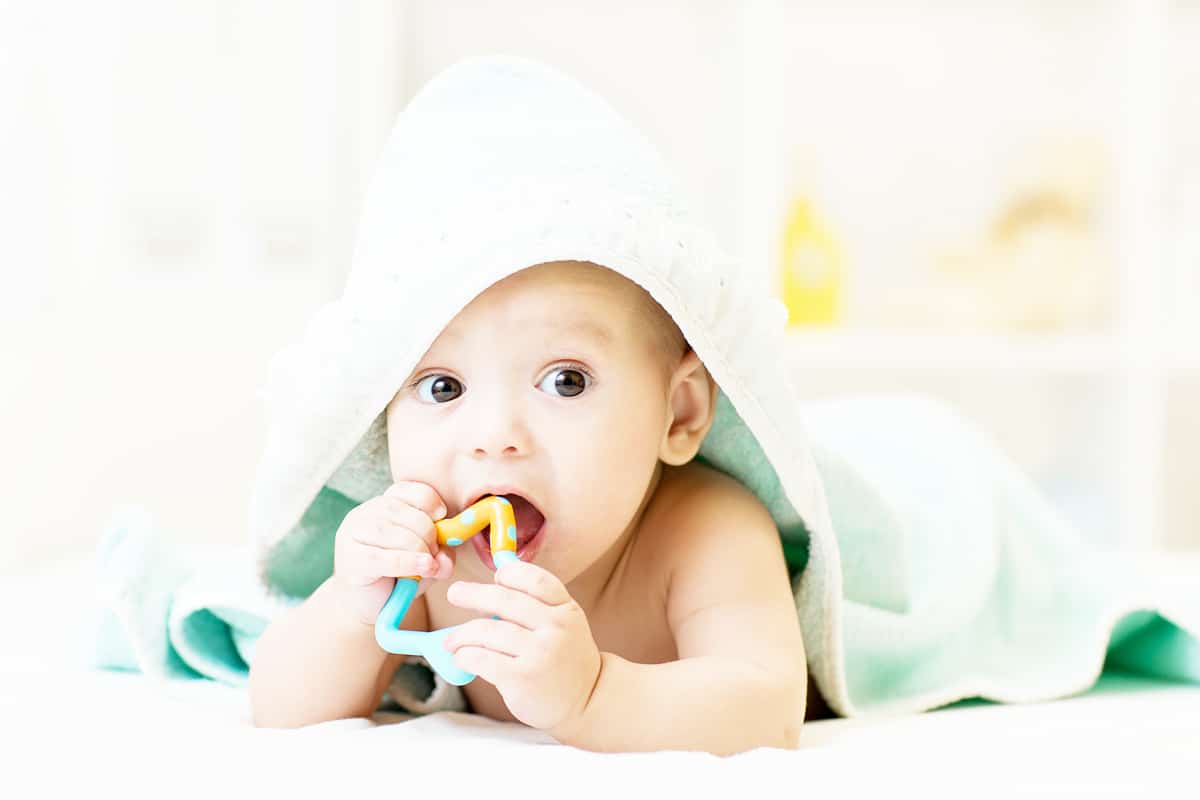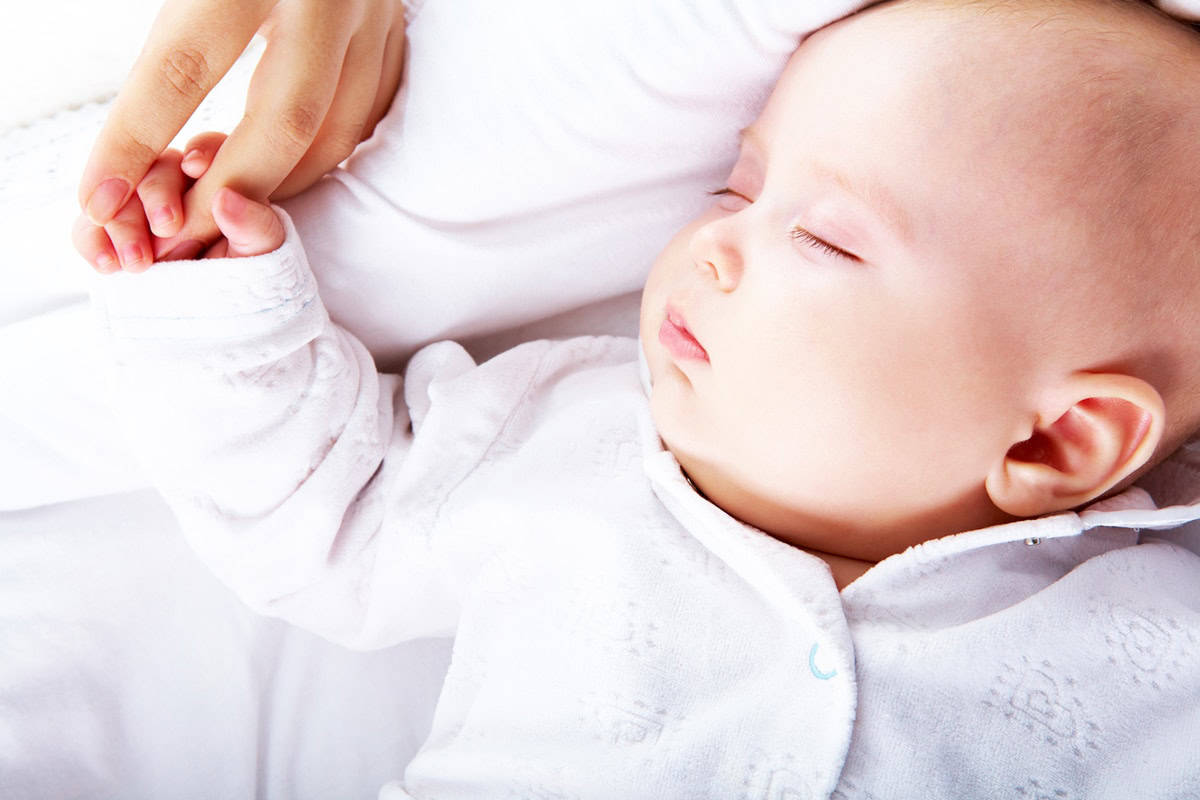Know what to expect the first month baby is home!

Did you know that babies don’t come with manuals?
I mean, I knew this when I was having my twins, but an instructional guide would have been helpful.
While there’s no way to know exactly what having your baby home in the first month is going to be like, it’s fortunate that most babies behave and develop along the same path.
So while nothing can prepare you for your baby’s individual personality and behaviours, you can definitely get an idea of what to expect overall during that first month home with your baby.
From your baby’s health, to their developmental milestones and some tips and tricks, here’s what your baby’s first month is going to look like:
Month One: Your Baby’s Health
Baby’s come in all shapes and sizes and have their own personalities and preferences. However, this doesn’t help when it comes to determining if your baby really is healthy or not.
Which is why visits to the doctor during the first few months are frequent – so you’ll always have a health professional guiding you along the way.
But when it comes to monitoring your baby’s health at home, here are some common things you may be concerned about:
Crying
There’s no doubt about it: Your new baby is going to cry.
But that’s how they communicate! Babies use a variation of cries and whimpers to tell you what he or she needs.
While some babies cry more than others, the reasons are mostly the same – dirty diapers, hunger, discomfort, loneliness. Even when you address the issue, it may take a few moments to calm your baby down again.
Constant crying is just a stage and as your baby grows and learns how to give you more non-verbal cues, the crying will decrease.
Sleep
If there’s one thing newborn babies do as often as they cry is sleep – just not all at once (unfortunately).
Newborns typically sleep about 14 hours a day and wake often for feedings. Don’t be alarmed if your little one sleeps longer than that. Every baby is different.
If you’re breastfeeding your baby, you can expect him or her to eat every 2-3 hours. Formula-fed babies can sometimes go a little longer, around 3-4 hours.
Make sure your baby’s sleeping environment is safe by using a firm crib mattress with no pillows, blankets, crib bumpers or stuffies. This will help reduce the risk of SIDS.
If you’re concerned that your baby may be cold, dress him or her in a warmer sleeper.
Umbilical Cord Healing
No matter how your little one arrived, whether by vaginal birth or C-section, all babies will end up with an umbilical stump that will eventually form their belly button.
The stump should fall off on its own within the first month or so of birth. To ensure the umbilical stump does not get infected, keep it clean and dry.
If you notice unusual bumps on your baby’s belly, there could be an umbilical hernia. These are common, and often go away on their own in a few months.
However, if it doesn’t or even if you notice the umbilical stump becoming red and irritated, it’s worth a trip to the doctor to check things out.
Losing Weight
No matter what weight your baby clocked in at after birth, you’re likely to notice a slight drop within the first couple of days.
This is caused by the loss of normal post-delivery fluids and the weight usually stops dropping at 5 days old.
Within a couple of weeks, he or she should regain the lost weight and begin gaining more weight.
If the weight loss keeps happening, or your baby isn’t gaining any weight, ensure your little one is receiving enough milk if you are breastfeeding.
Otherwise, check in with your doctor.
Month One: Baby Milestones

It’s hard to believe that this tiny human nestled in your arms will someday be running around, making messes and talking up a storm.
Before you hit that stage, though, your baby will follow certain developmental milestones and the first month is no exception.
By the end of a baby’s first 30 days, he or she will be able to focus on faces (especially yours), bring their hands to their face and lift their head briefly during supervised tummy time.
You may also notice your little one responding to loud noises, vocalize in ways other than crying and smile when smiled at.
That’s a lot of growth in one short month!
10 Tips for Surviving the First Month
Whether this is your first baby or your fourteenth baby, the first month home with your baby is always a challenge. Here are some tips to help you survive those first 30 days:
1. Ask For Help
Expecting support after having a baby can be an exercise in frustration.
Some people in your life have already had children and don’t remember the pains of that first month. Others have never had children and can’t begin to understand the struggle of being a new parent.
However, even if these people aren’t barrelling through your door to help, they will be there immediately if you ask.
There’s no shame in asking for help, whether it be having a friend drop off some groceries or asking a family member to watch your little one so you can enjoy a long shower.
2. Establish a Routine
You can greatly reduce the stress of having your baby at home that first month by establishing a routine and creating expectations in your household.
Chore charts for older children, morning rituals and bedtime routines will help to maintain order in your home while you care for your newborn baby.
This is also helpful for your little one, since eventually you will want them to sleep in their own crib and bed. Establishing this routine right away helps them transition from one phase of their development to the other.
3. Put a Crib or Bassinet in Your Room
You’re going to lose a lot of sleep if you have to force yourself out of bed and down the hallway at all hours of the night to feed your baby.
Placing a crib or bassinet in your room will not only help you maintain a healthy sleep schedule, but it also contributes to reducing the risk of SIDS.
Plus, it establishes the expectation for your baby that they will be sleeping on their own as they get older – but you get to keep them close by during those precious first days.
4. Have Some “Me Time”
Yes, you are a mom now – but you are also the same person you were before your pregnancy. It’s important to find time to focus on that.
Have someone watch your little one for a bit while you go out and do the things you enjoyed before he or she was born.
Or simply enjoy a warm bath and a good book when your baby has a nap.
Find the time to enjoy activities that nurture your soul.
5. Follow Your Baby’s Cues

Sleep training, cry-it-out, feeding schedules…there’s so much out advice out there and it can get so confusing!
Save yourself the stress of following “recommended” protocols by learning your baby’s cues and following them.
You’ll become more in tune with your baby’s needs. Eventually, you’ll know a hungry cry from a tired cry and a wet diaper cry from an uncomfortable cry.
Then you’ll be able to address your child’s needs quickly and get on with your day.
6. Rest When the Baby Sleeps
“Sleep when the baby sleeps” is a sage-old piece of advice but one that doesn’t necessarily work in application.
When are you supposed to do the laundry? Wash the dishes? Have a shower?
It’s easy to take advantage of nap times to get things done but during that first month you should focus on resting and taking care of your physical health.
Give yourself a pass for at least 30 days and lay down and relax when your little one has a nap.
7. Keep the Lights Low
The ultimate challenge of nightly feedings is to get the job done without waking yourself or the baby up completely.
Instead of turning on the lights to see what you are doing, grab a night light that’s bright enough to illuminate the room but soft enough that it doesn’t disrupt everyone’s sleep.
This is also helpful for the forty times you are probably going to have to pee during the night.
8. Go For Walks
Walking is so beneficial not only to your physical health but your mental health as well. The gentle movement of walking out in the fresh air is rejuvenating and relaxing.
Your baby will love it as well! Just grab the stroller, pop in your headphones and walk around the park or your neighborhood.
Just don’t push your postpartum body too far. Walk only as far as you are comfortable – there’s no goal here other than to just get out and move around for a bit.
9. Keep a Journal
Someday you are going to wake up and find yourself moving beyond the early stages of motherhood as your baby grows to become more independent and self-sufficient.
Remember those people I mentioned above who have had children and forgotten the struggles of that first month? You will eventually, too.
Preserve those precious memories by keeping a journal during your baby’s early days. You’ll appreciate looking back at the challenges you survived!
10. Call Your Doctor
Yes, having a baby is a traumatic experience for the body, but recovery should not be debilitating to your body or mind.
If you are experiencing unusual pain or are dealing with depressive thoughts, you should seek advice from your medical practitioner right away.
Receiving proper treatment or advice can make a huge difference during those first few weeks with your little one at home.
Welcome Home!
Leaving the hospital and finally having your baby home is such an exciting time!
Sure, there’s going to be a lot of questions, concerns and adjustments, but you’ll be amazed at how quickly things tend to fall into place.
As hard as it may seem, try to relax as often as you can and enjoy this special time.
Now it’s your turn – What was it like bringing your baby home for the first month? Any tips you can share? Leave them in the comments!




Leave a Reply